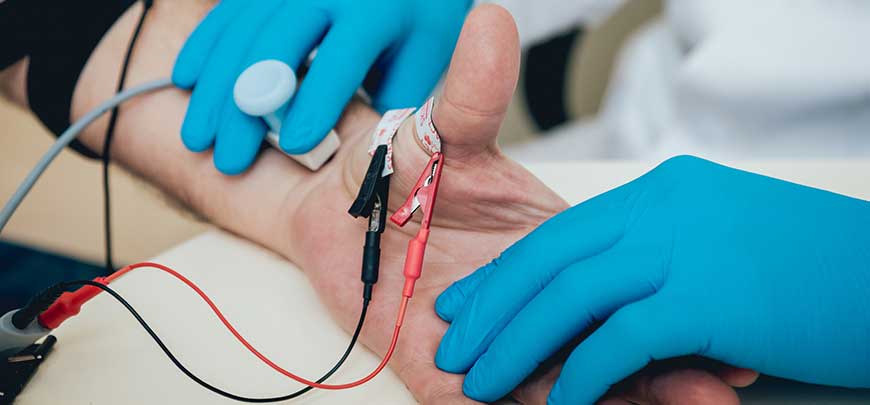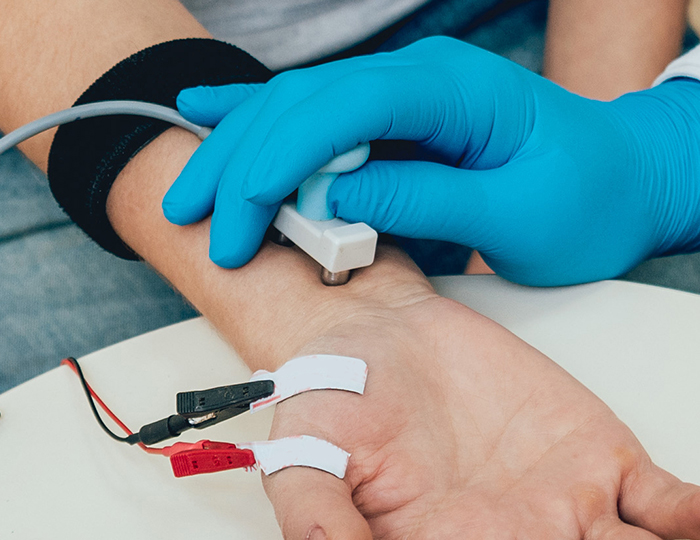
Although not every patient will exhibit the same symptoms for radiculopathies, it is common to see decreased reflexes related to the affected nerve root, weakness in muscles innervated by the affected nerve root, and sensory symptoms in the dermatomal pattern. On inspection, it is necessary to evaluate muscle atrophy as well. On the physical exam, it is essential to test motor strength, sensation, and reflexes bilaterally. If there is motor nerve involvement, patients will also complain of weakness in the involved nerve's myotomal distribution. This is often accompanied by numbness and tingling caused by the impinged sensory nerve's dermatome distribution. Developed in cooperation with the American Association of Neuromuscular & Electrodiagnostic Medicine for Choosing Wisely, a project of the ABIM Foundation.Patients with cervical radiculopathy commonly complain of neck pain, with radiation to the arm. It is not a substitute for medical advice and treatment. This report is for you to use when talking with your health-care provider. An NCS without an EMG can lead to the wrong diagnosis. Also, if you have a pinched nerve, don’t get an NCS without an EMG. The test has not been proven to help, so your insurance may not cover it. Some studies suggest that a dermatomal SEP gives information that is not accurate. You rarely need to get an EMG test on each arm or leg. You may not need an EMG-unless you have pain, tingling, weakness, or numbness in your arm or leg. Back or neck pain after a car accident.There are situations when you might not need the tests: An EMG or NCS may cost from $150 to $500.Discomfort where the needles are inserted.Dermatomal SEP: This test uses electrodes and small electric shocks to look for pinched nerves.Īll three tests are safe, but they do have some downsides and risks.The test measures how your nerves respond. These send small electrical shocks to your nerves. During an NCS, electrodes are placed on the skin of your arm or leg. NCS (nerve conduction study): This is a test to see if your nerves are working correctly.A small, thin needle is inserted into muscles in your arm or leg.



This is usually the result of a pinched or irritated nerve. Neck or back pain can cause numbness, tingling, pain, or weakness in your arm or leg.

But in some cases, the tests aren’t needed. These tests can help your doctor find nerve or muscle damage. If you have neck or back pain, your doctor may order electrodiagnostic tests to check your nerves and muscles.


 0 kommentar(er)
0 kommentar(er)
